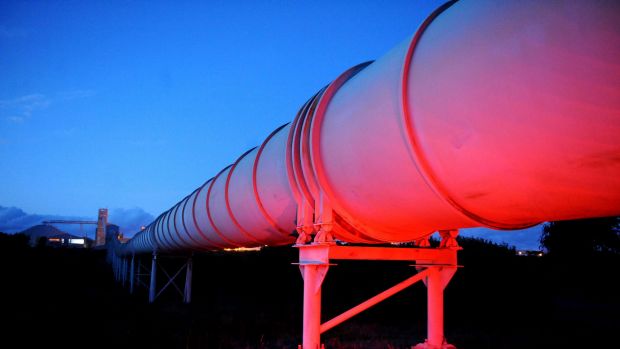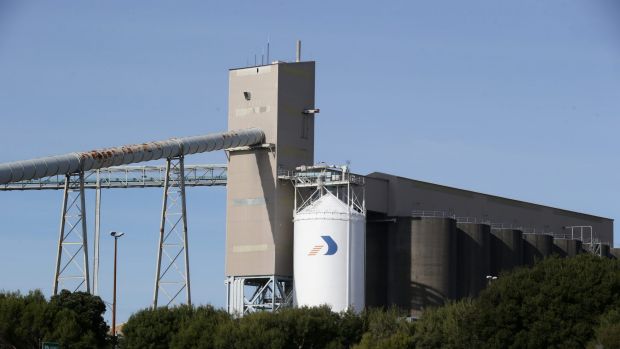It is the perfect storm for power prices. Not only has the cost of electricity been pushed up by the looming closure of Hazelwood power station, domestic gas prices have also been knocked for six. It's not that Victoria lacks an abundant supply of offshore gas, but rather energy companies can now make more money sending it overseas.
Add in a moratorium on onshore gas production imposed by the Victorian government and nervousness about the ability of the grid of cope with any further loss of base-load capacity, and you have to think the only way for power prices is up.
More National News Videos
Victoria warned of energy price hike
Electricity bills are expected to jump to an average of $99 per year due to the impending closure of the Hazelwood power station.
To state the obvious, this is bad news for households, facing average annual price rises for electricity of between $120 and $220, and for energy-intensive businesses, many of which are already complaining they are being squeezed.
The issue is also diabolical for governments. Remember when we were collectively debating the future of the local car-making industry? In December 2013, former Treasurer Joe Hockey taunted car makers to stop dithering and make a decision about whether to leave, declaring: "Either you're here or you're not."

The sentiment in conservative circles was that big companies should be made to stand on their own. The days of big taxpayer-funded bailouts for industry seemed to be drawing to a close.
The situation for Alcoa's Portland aluminium smelter provides another interesting example. For decades, the smelter had reaped the benefits in heavily subsidised brown-coal-fired power, sent 500 kilometres across the state at taxpayers' expense.
When the world price of aluminium went down, the subsidy went up. The deal had cost taxpayers billions since it was locked in by the Cain government in 1982. In 2010, the former Brumby government assured Victorians that no further taxpayer subsidies would be handed out when the contract expired in 2016.
As Treasurer Tim Pallas revealed in March last year, the arrangement has been costing "well in excess of $100 million" for some years, confirming it would not be revisited when the contract ended.

Then, quite suddenly, the mainstream thinking on industry policy seemed to change. This coincided with the election of industry policy activists such as Donald Trump in the United Sates, and Paul Hanson and Nick Xenophon in Australia.
There is now serious anxiety in Liberal ranks that disgruntled voters are bleeding to One Nation, which, according to some polls, is capturing almost 10 per cent of the state vote.

This at least partly explains the change in political sentiment. The Liberal state opposition has for weeks been claiming the Andrews government should have done more to bailout Hazelwood, which is more than 40 years old.
News that the plant would be closed earlier than expected sent the market into a spin. That in turn led to the temporary cessation of negotiations between Alcoa and AGL over a new electricity supply deal. AGL's view appeared to be that until the outlook for power prices was more certain, it would not be committing.
As the Australian Energy Market Operator pointed out last month in the wake of the Hazelwood announcement: "We have never before faced such a high level of uncertainty in our long-term planning forecasts."
Then, after various interventions from state and federal governments, it was back to the negotiating table for AGL and Alcoa.
At a marathon 12-hour meeting last Sunday, chaired by state treasurer Tim Pallas, the price and length of a new electricity supply were broadly agreed to. Victoria is believed to have offered about $200 million to Alcoa to keep the plant running, and the Commonwealth $40 million in an interest-free loan.
To complicate things, all of that followed a crippling power outage in December which caused molten aluminium in more than 200 smelting pots to cool and solidify at the Portland smelter, leaving the plant running at one-third of its capacity.
The consequences for Portland of letting Alcoa close the smelter would be enormous. The plant directly employs 600 people, with as many as 180 contractors and 2000 indirect jobs.
In this sense, the level of political squeamishness about Alcoa is understandable. Letting the smelter go under would be tantamount to letting half a town go under. And while $240 million over four years might seem like a lot, it is still only about half the level of assistance offered under the previous subsidy arrangement.
Even so, the looming deal to keep the plant going is having some major flow-on effects. Not least among them is a view that it will keep power prices high, given the smelter is the state's biggest power user, consuming about 10 per cent of the total.
This is undoubtedly good news for AGL. In a note to investors, investment firm Morgan Stanley concluded AGL was better off offering discounted power to Alcoa because this would keep wholesale power prices higher.
In other words, the deal is ultimately going to come at the expense of households and other businesses. Now energy-intensive businesses are arcing up about the impact.
As the AFR revealed this week, big energy users like BHP Billiton and Dow Chemicals have accused AGL of imposing 50 to 100 per cent power price increases, while doing sweetheart deals with Alcoa because it is politically sensitive.
The argument is that all energy users, not just a select few, should benefit from lower prices. This neatly illustrates pitfalls of selective industry policy. Help one company, and it often comes at the expensive of others. Then, before you know it, everyone wants a handout.
There is nothing wrong with industry policy, but it needs to be strategic and long term, not knee-jerk and reactive. Governments have known for years that the days of cheap, brown-coal-fired power would draw to an end.
Yet they failed to take action to create an alternative. Now we are feeling the consequences. Hang on to your seats, because chances are, it's only going to get worse.
Josh Gordon is State Political Editor.















